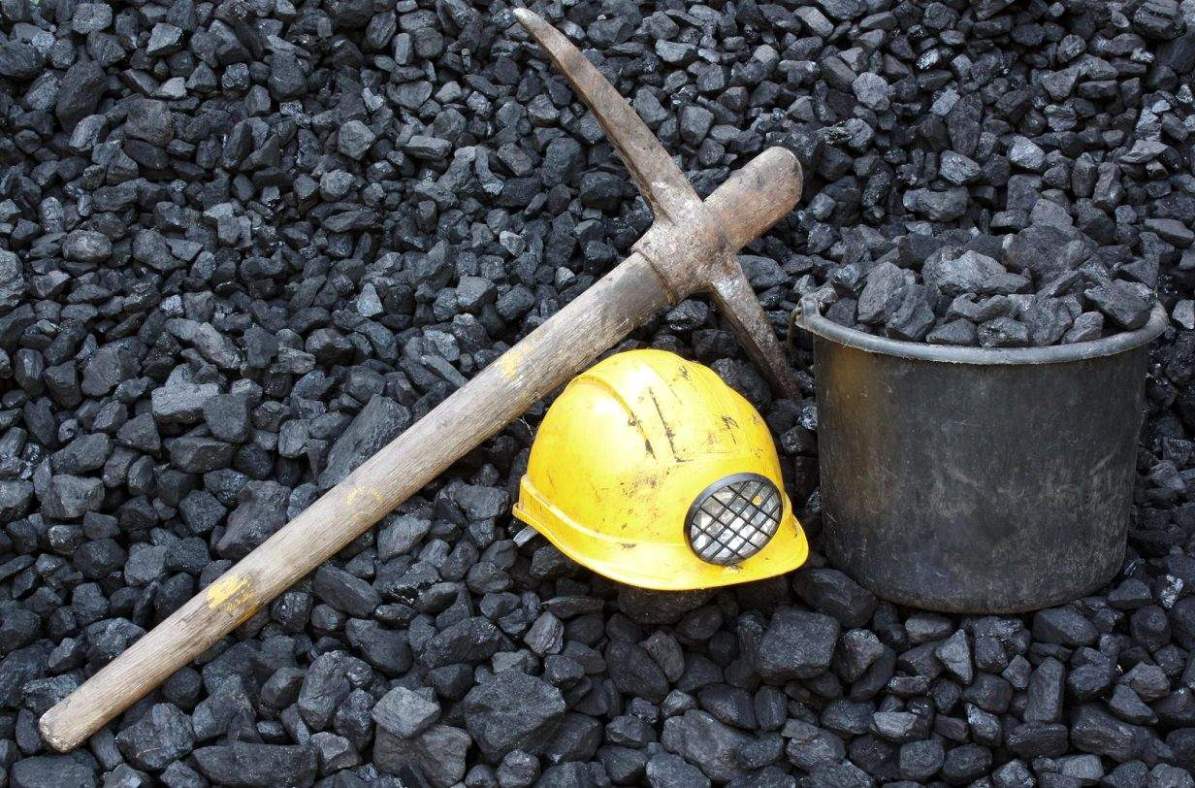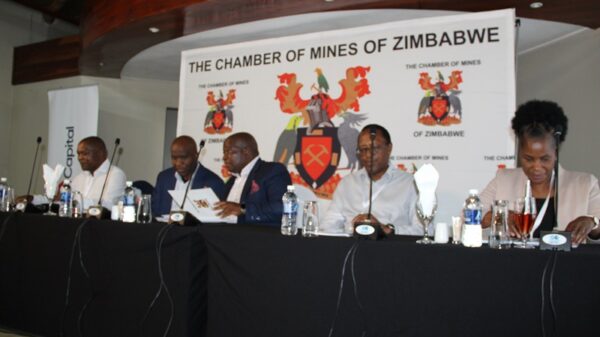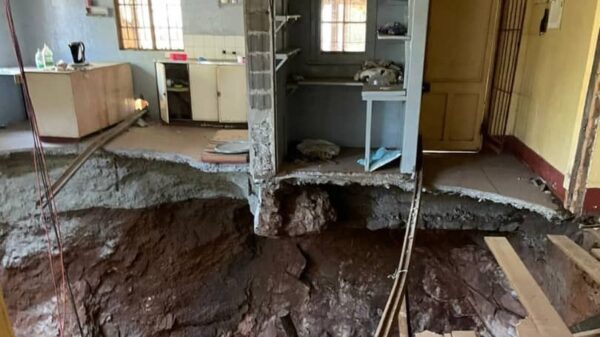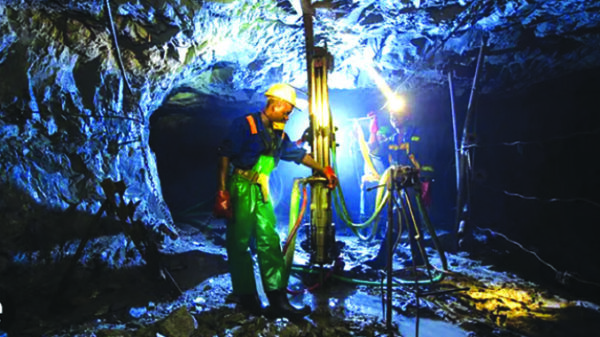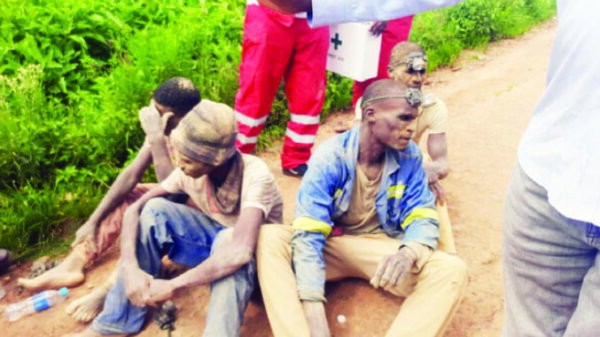Mining companies in Zimbabwe, specializing in gold, chrome, diamond, and platinum, have collectively allocated only US$20 million for corporate social investments between 2018 and 2022. This figure is disconcerting considering they have generated a substantial revenue of US$5.5 billion during the same period. Unfortunately, this trend exacerbates the ongoing resource curse.
Meanwhile, mining communities have been protesting the non-payment of royalties by these companies, while residents struggle with poverty. For instance, the resettlement facility in Arda Transau, where individuals forcibly relocated from the Chiadzwa diamond fields now reside, has deteriorated significantly. The community lacks access to vital resources such as water and faces extreme poverty.
Additionally, critical infrastructure like the Marange Clinic has been steadily deteriorating, prompting concern from observers. In 2007, the government declared the diamond fields protected areas under the Protected Places and Areas Act (PPAA) to enable the exploitation of these treasures. Promises were made to improve the living conditions of the resettled families, but many of these promises remain unfulfilled.
According to the Sivio Institute’s Mining Revenue Monitoring Index (MRMI), which analyzes the financial contributions of ten mining companies, only US$20,344,000 was allocated for corporate social responsibility, despite generating US$5.5 billion in revenue. The MRMI aims to enhance understanding of how the mining sector’s finances contribute to the country’s social development.
The index reveals that gold mining companies, such as Caledonia Blanket Mine, Falcon Gold, Kuvimba Mining House, RioZim, and the Zimbabwe Mining Development Company (ZMDC), allocated US$2 million for corporate social responsibility, with a net profit of US$313 and a tax payment of US$30.
In the platinum sector, companies like Mimosa, Unki, and Zimplats reported a net profit of US$3 billion, paid US$497 million in taxes, and invested US$13 million in corporate social initiatives.
Diamond mining companies, including RioZim, Anjin, and the Zimbabwe Consolidated Diamond Mining Company (ZCDC), generated US$896 million in gross revenue and US$65 million in net profit from 15 million carats. They allocated US$5 million for corporate social investments.
Regarding chrome mining, Applebridge and Zimasco contributed US$344,000 for corporate social investment.
Tensions are escalating in the Chiadzwa diamond-rich fields, as local communities and civil society demand transparency in the distribution of royalties by both the government and mining companies to benefit the local community. The Zimbabwe Diamond Policy (ZDC) stipulates that extractive industry companies should allocate 5% of their profits for community development purposes.
The state-owned Zimbabwe Consolidated Diamond Company (ZCDC) and the Chinese company Anjin are active in the region.More communities are suffering from the consequences of poor mining practices. Last year, residents of the Raylton suburb in Hwange protested against the heavy dust pollution caused by mining companies. These companies’ large vehicles pass through residential areas, raising dust that locals fear could lead to a health disaster.
In addition, villagers in the Dinde area of Hwange district are opposing a coal-mining project led by Chinese-run Beifa Investments. This project is expected to displace approximately 600 families and cause damage to the environment. Exploration in the area revealed a total of 206 million tonnes of coal, and the mine is projected to last for 14 years.
According to the Centre for Natural Resource Governance (CNRG), a governance watchdog, corporate social responsibility (CSR) in Zimbabwe has lost its meaning. Farai Maguwu, the executive director of CNRG, stated that communities surrounding mining areas in Zimbabwe, with the exception of Zimplats, are struggling with poverty. Mining trucks are destroying roads, and mining companies are not taking responsibility for repairing the infrastructure. Moreover, there is a lack of transparency in how companies disburse revenues to the communities. The promised amount of money given to the communities is often unclear, and communities receive a small fraction of what they should.
Furthermore, Maguwu highlighted the false promises made by mining companies to improve the communities where they operate. In Marange, for example, the companies keep the community hopeful while continuously changing their plans and failing to deliver on their promises.
Maguwu emphasized that mining companies should be legally obligated to give back to the communities affected by their operations. Corporate social responsibility should not be seen as an act of charity, but rather as compensation for the damage caused. Maguwu suggested that companies should be required to pay a certain percentage of their earnings, and transparency is crucial in determining the amount they owe annually.
Mining has significant impacts on communities, including degradation, health issues, and pollution. Therefore, CSR should be seen as an obligation rather than a voluntary act. The health impacts of mining cannot be ignored, as people are suffering and losing their lives due to mining activities.James Mupfumi, the director of the Centre for Research and Development (CRD), agrees with Maguwu and suggests that the Mines and Minerals Act should be amended. He believes that this amendment would allow communities to enter into binding agreements with mining companies.
Mupfumi explains, “In Zimbabwe, corporate social responsibility (CSR) is not mandatory, and mining entities are not legally obligated to allocate funds for community development. What is needed is a new Mines and Minerals Act that compels mining entities to establish community development agreements (CDAs) with the host communities.”
Dr. Andrew Chikowore, an expert in corporate social investment, shares a similar view. He believes that Parliament should create legislation to guide companies and ensure that local communities benefit from the resources in their area.
Chikowore explains, “It is crucial to establish comprehensive legislation that governs the operations of mining companies in Zimbabwe, particularly in relation to CSR. This legislation would require companies to fulfill their commitments and actively engage in social responsibility initiatives,” Chikowore told The NewsHawks.
Furthermore, Chikowore emphasizes the importance of strengthening regulatory bodies such as the Environmental Management Agency (Ema). This would enable them to effectively monitor and enforce compliance with environmental regulations, while holding companies accountable for their mining activities, including the rehabilitation of mined areas.
Chikowore also points out the deficiencies of community share ownership trusts (CSOTs), including the lack of representation from special interest groups, failure to involve communities in decision-making processes, inadequate transparency regarding the use of received pledges, and incidents of corruption.
ALSO READ: Zimbabwe Starlink Users Left in Limbo as Satellite Internet Service Faces Regulatory Hurdles
“Therefore, it is essential to strengthen and empower CSOTs by improving their transparency, governance systems, and accountability mechanisms. CSOTs should also receive training in business management to promote diversification and ensure their sustainability,” suggests Chikowore.
In sum, Chikowore argues for the empowerment and capacity-building of CSOTs to enhance transparency, governance structures, and accountability mechanisms.
This would enable these trusts to effectively deliver on social development projects. Equipping CSOTs with business management skills would promote diversification and ensure their long-term sustainability in driving community development.

